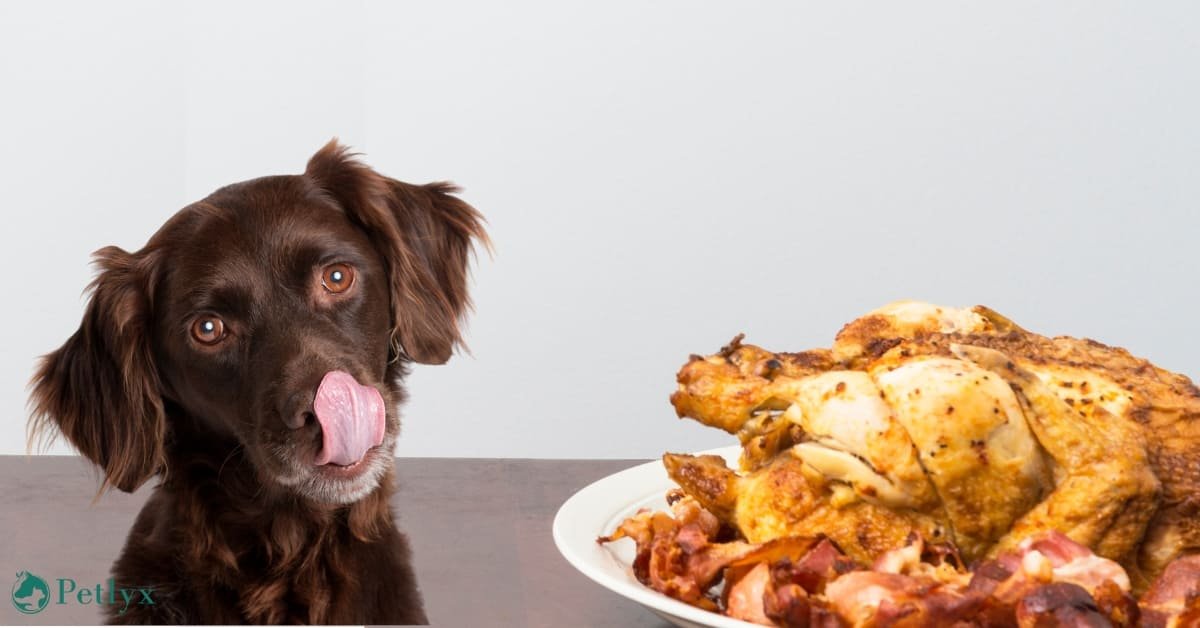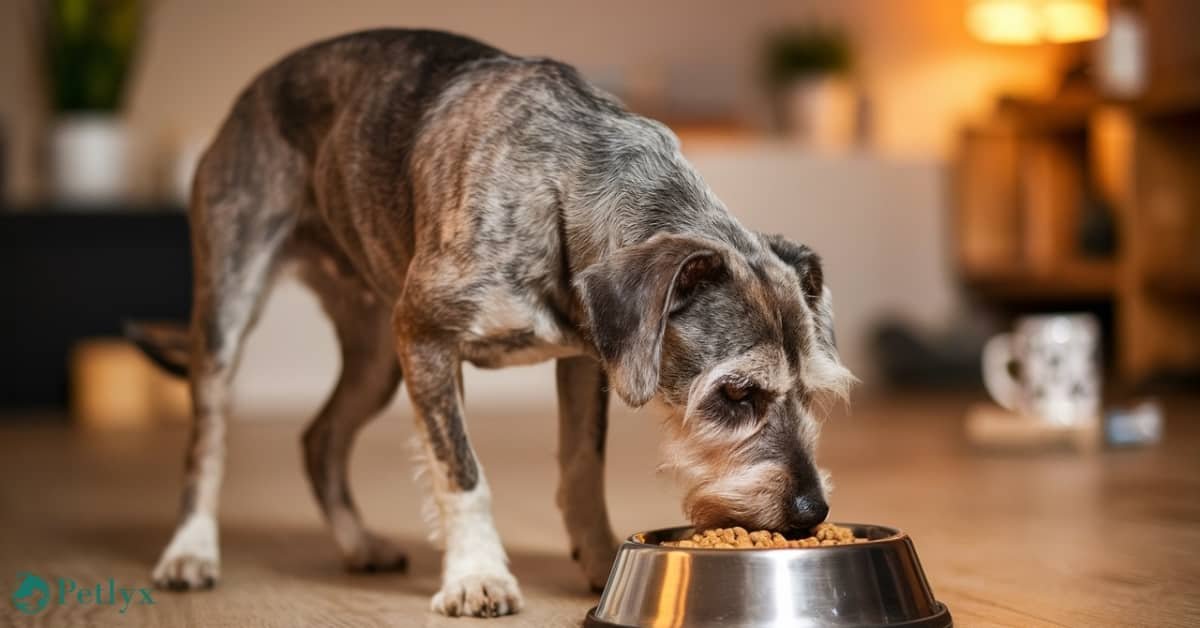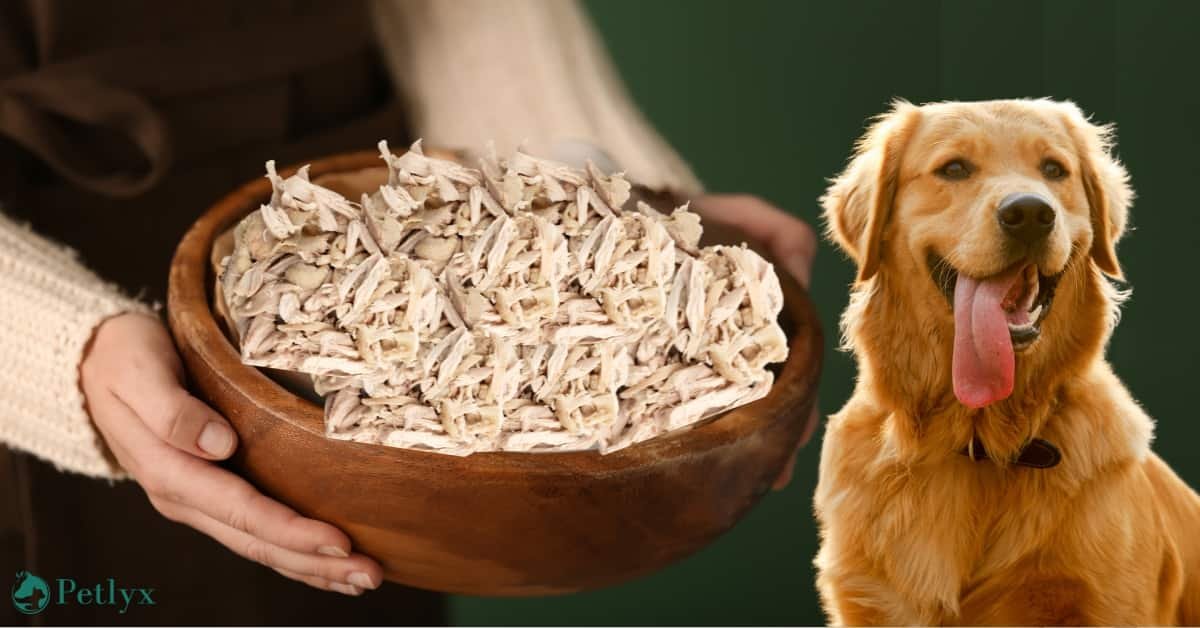Chicken vs lamb, which one is better for your dog might be your question as a pet owner. For a healthy wealthy dog, understanding the commitments of their nutritional requirements and what suits them the most, is necessary. You can choose the best option whether chicken or lamb meat according to your dog’s lifestyle. Chicken and lamb, both are great protein sources and have a delectable taste but which one is more beneficial for your four-legged partner, let’s find out.
Which is healthier, chicken or lamb?
Chicken for dogs
A lean protein source in canine food is frequently chicken. You can feed a chicken meal as a whole or mix it with several ingredients in his regular diet.
Advantages
Chicken offers a lot of benefits to your dog where some of these are given below:
- It is a superb protein source and gives energy to your dog.
- It won’t add too many extra calories to your dog’s diet as it is lean meat with low-fat content.
- It has a richness of omega-6 fatty acids, which are beneficial for your dog’s joint health, coat, and skin.
- Chicken breast is packed with antioxidants, zinc, phosphorus, and vitamin B.
- It helps in building lean muscle mass and so has a supreme side for overweight dogs.
- For the healthy bones of your dog, chicken has essential amino acids and glucosamine.
- If your canine facing problems like appetite loss, sickness, and vomiting then chicken helps to comfort his tummy.
Disadvantages
- Watch the sensitivity signs as chicken proteins can be allergic to some dogs.
- Depending on processing methods, chicken quality matters because some commercial canine food may have additives or by-products.
Lamb for dogs
In contrast, a more novel protein source is lamb than chicken. However, it is becoming more famous in canine food. Though you can give lamb as a main course you can also make it combo with several ingredients in regular diet.
Advantages
Here’s a glance at the benefits of feeding lamb to dogs:
- It is a significant protein source for dogs, which aids the body tissues and muscles to build and maintain in their body.
- Some dogs are such picky eaters. For them, lamb is a delectable meat and a great protein source.
- It is packed with dietary fats, all nine essential amino acids, niacin, and vitamin B12. All of these compounds help boost the energy level and make the skin and hair healthy in your dog.
- The richness of iron in lamb helps the hemoglobin and red blood cell formation in your dog. For the normal function of certain enzymes in the dog’s body, iron is important.
- To give your dog a shiny and healthy coat, lamb also contains omegas.
- Some dogs have food sensitivities and are allergic to other meat types, so lamb is appropriate for such canines.
- It is easily digestible and helps to soothe the gastrointestinal problems in dogs.
Disadvantages
- Dogs having allergies should avoid lamb meat as it can cause sensitivities and adverse reactions in them.
- To prevent weight gain, you have to monitor the portion size as lamb meat has high calories.
Precautions to note while feeding chicken and lambs to dogs
Some of the pet owners feed raw chicken or lamb meat to their dogs, while others like to feed cooked ones. Whether it’s lamb meat or chicken meat, both are good protein sources for dogs. However, some things should be considered before giving chicken or lamb meat to dogs:
- Avoid adding seasonings and sauces to the lamb and chicken meat. If you are giving cooked meat, it should be plain. Harmful ingredients like salts should also be avoided as they can cause toxicity.
- In the ladder of the top 10 allergy-causing constituents, chicken also ranks. So before you feed chicken to your dog, make sure your canine is not allergic to chicken meat.
- Avoid feeding your dog raw lamb meat, if it has a weak immune system and certain health conditions.
- Although the organs of lamb and chicken add nutritional content to dog food, to avoid any digestive problems, feed them in moderation.
- There’s a richness of phosphorus, calcium, and other nutrients in raw lamb bones which helps to make a strong skeleton in your dog.
- Lamb bones and cooked chicken shouldn’t be given to the dogs because they can spell and have choking hazards.
Can I switch my dog from lamb to chicken?
For the prevention of allergic reactions or variety maintenance, there should be a change in diet every 3 months. You can alter the protein options like chicken, lamb, and beef to get the best outcomes. This food alteration may initially cause gastrointestinal problems as canines have sensitive stomachs.
Can you mix chicken or lamb for dogs?
The spice of life wants variety, even for our canines. So, combining several meat varieties in dog food can enhance nutritional value, improve health, and give a luscious taste. However, be aware of your dog’s health condition; he might be allergic to some types of meat.
Which one is best for your dog, chicken or lamb?
Whether it’s chicken or lamb meat, no one can fit in all healthy blanks. The final choice depends on your dog’s dietary considerations and nutritional requirements. You can make sure that your canine is having a satisfying and nutritious diet if you choose a high-quality meat source that meets your dog’s health considerations. Do not forget, that healthy food makes a healthy dog. A healthy dog is what a dog owner wants.
Conclusion
To choose wisely, it’s better to understand your dog’s nutritional and diet needs so you can make your dog healthy. If your dog needs a palatable and nutritious diet, then lamb is the ideal option. Chicken is a low-fat and lean protein meat source for your dog. Go for the options that suit your canine well for several health purposes.






